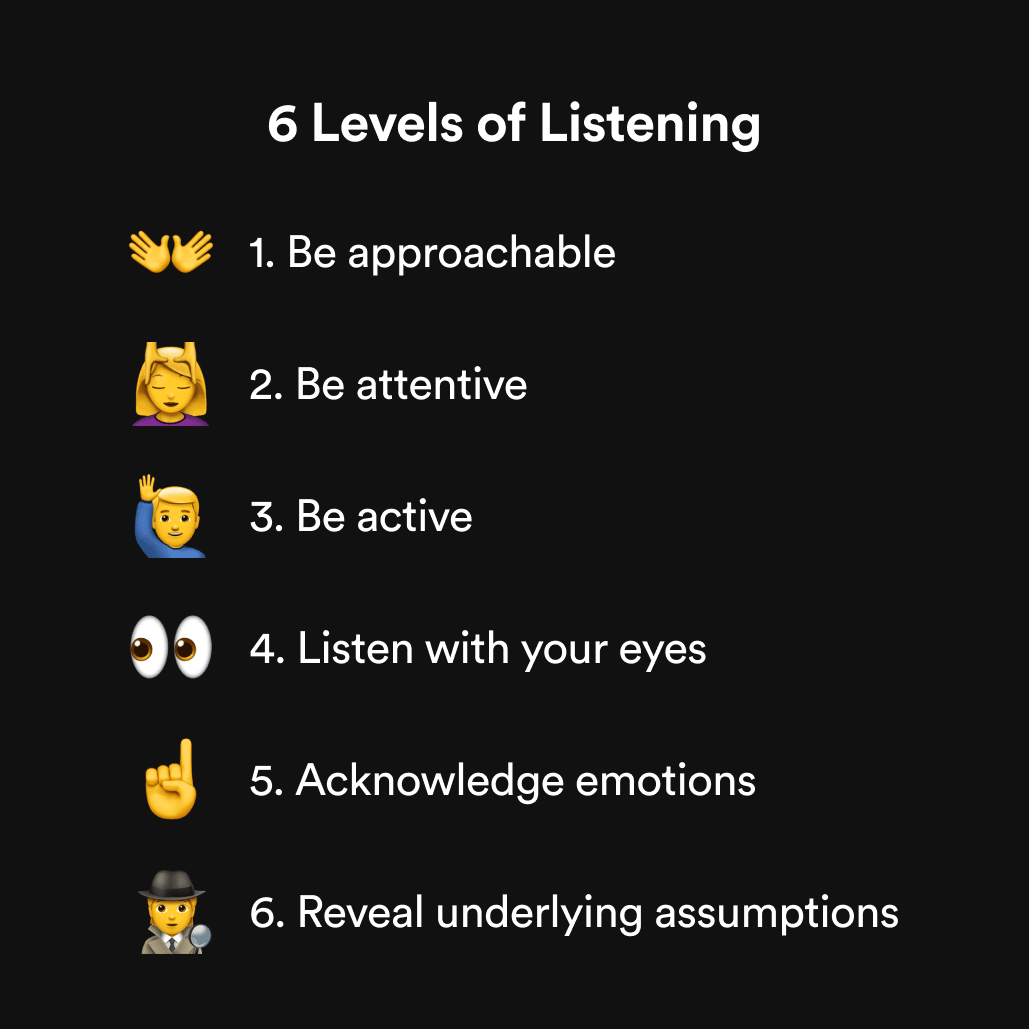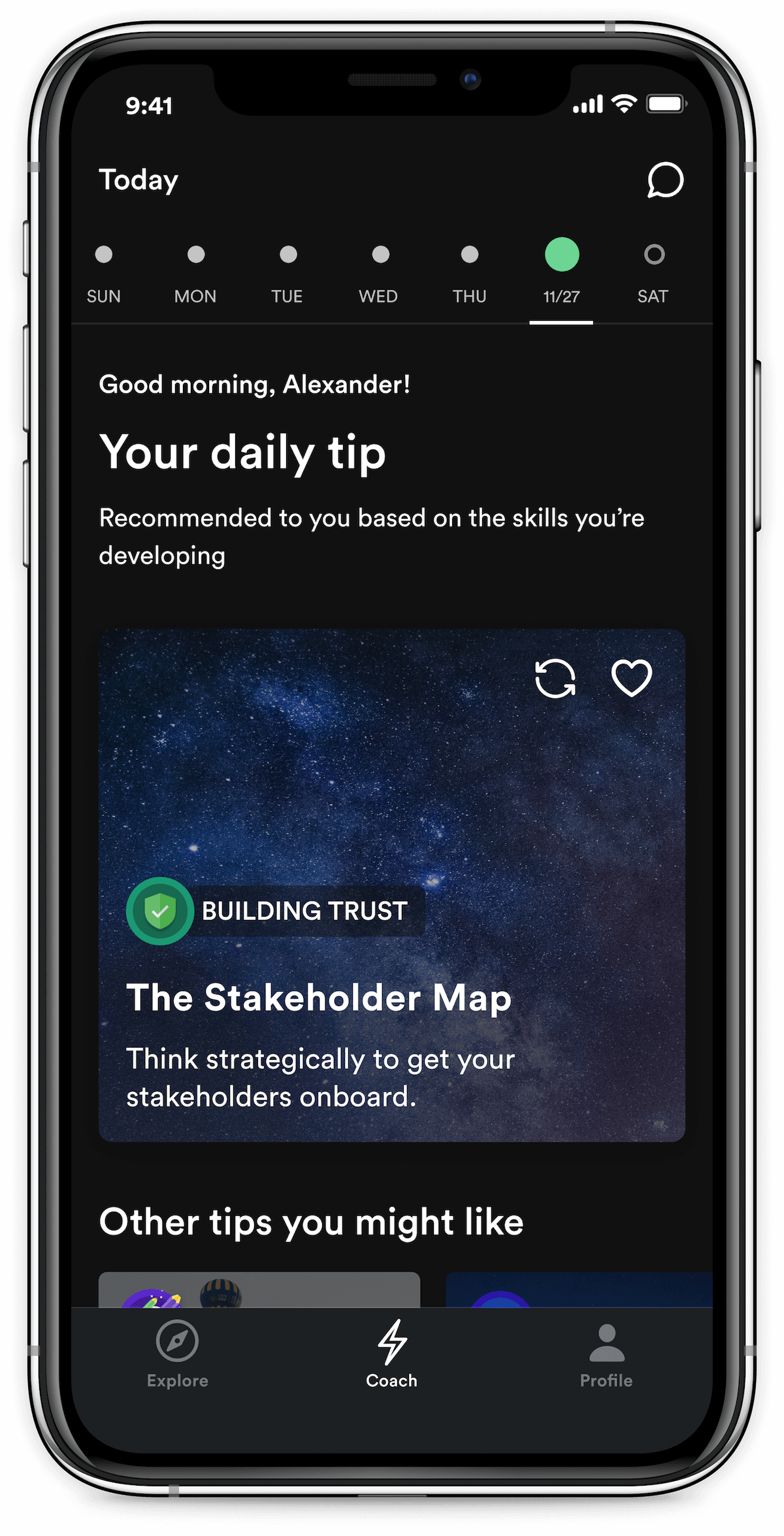6 Levels of Listening
Build deeper connections by leveling-up your listening skills.

Inspired by:
Jack Zenger, bestselling author, speaker, and national columnist for Forbes and HBR

The common misconception
Great listeners don't just silently nod along. If you really want to form stronger connections with people you need to be active in the conversation.
You need to help the person reach a greater understanding through dialogue and support.
In fact, there are levels to listening, so are you ready to level-up?
👐 Level 1 - Be approachable
You create a safe environment in which difficult, complex, or emotional issues can be discussed.
In a soft tone, use phrases like: • I hear you… • Tell me more about that… • It’s okay to talk about it…
💆♀️ Level 2 - Be attentive
You clear away distractions like your phone, focusing attention on the other person and making appropriate eye-contact.
(In a virtual setting, place your laptop at eye level and focus on them - you can even “hide” your own panel in Zoom so you don’t get distracted!)
This not only affects how you are perceived as the listener; it immediately changes your mindset, you’re actively telling your brain where to focus.
🙋♂️ Level 3 - Be active
You seek to understand the substance of what the other person is saying. You capture ideas, ask questions, and restate issues to confirm that your understanding is correct.
Say things like: • What have you tried so far? • How do you feel about that? • You said this has been going on for a while...?
👀 Level 4 - Listen with your eyes
You observe non-verbal cues, such as facial expressions, breathing, gestures, posture, and numerous other subtle body language signals.
It's estimated that 80% of what we communicate comes from these signals. So listen with your eyes as well as your ears.
☝️ Level 5 - Acknowledge emotions
You understand the other person’s emotions and feelings and acknowledge them. You empathize with and validate those feelings in a supportive, non-judgmental way.
Labelling negative emotions allows them to process it further, for example It sounds like you’re disappointed…
Acknowledging positive feelings reinforces them and helps them elaborate: It seems like you really like your colleagues...
🕵️ Level 6 - Reveal underlying assumptions
You ask questions to clarify assumptions the other person holds and help them to see the issue in a new light.
For example: • How did you come to believe that? • It sounds like you want X...am I hearing that correctly?
Which level are you?
Think of the next conversation where you can train your listening skills: • A 1:1 with your report or your own boss • A sales or support call with a customer • A chat with your friend? Your partner? Your child?
Challenge yourself to get to the next level!

Become a world-class leader in two minutes a day